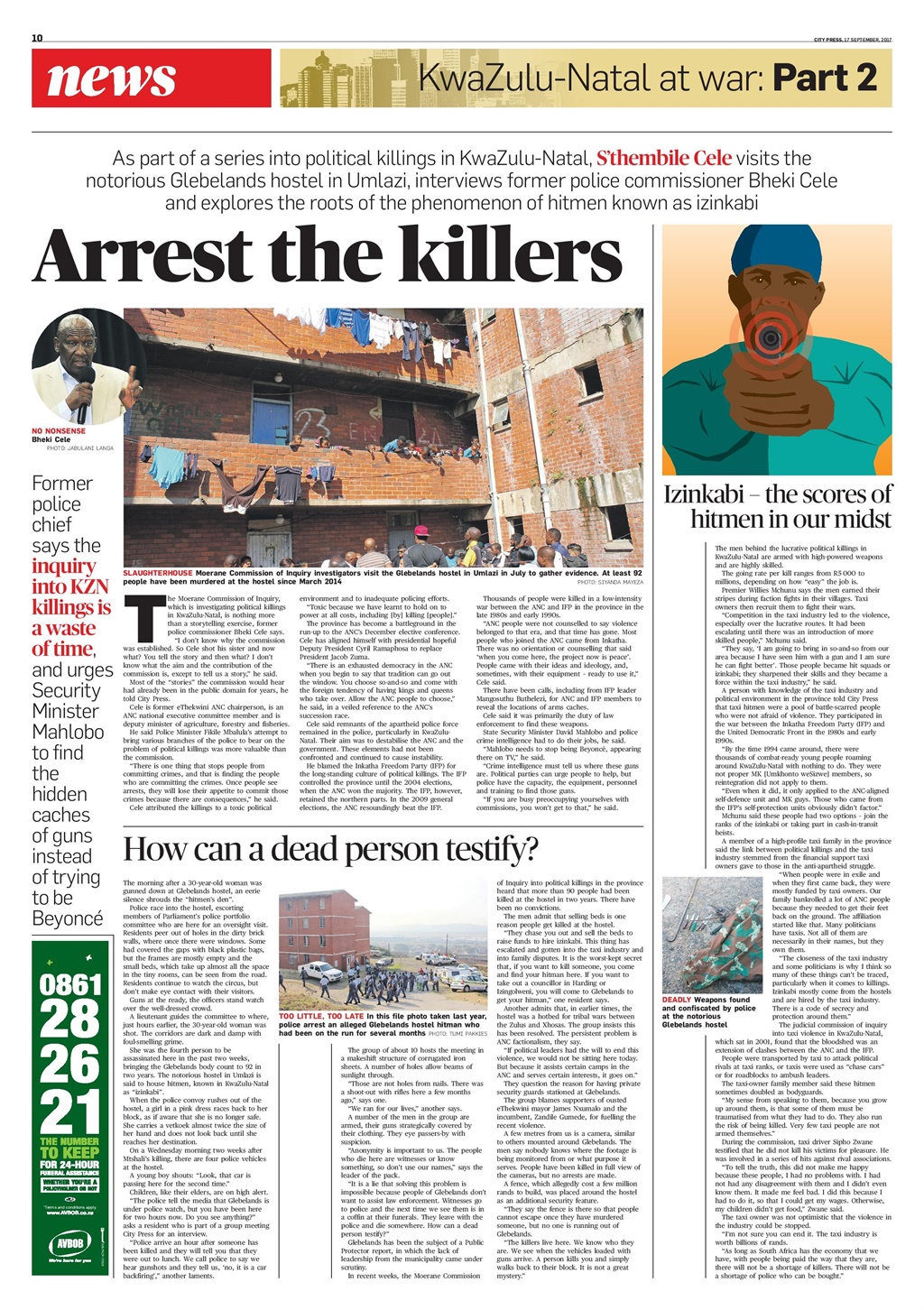
The men behind the lucrative political killings in KwaZulu-Natal are armed with high-powered weapons and are highly skilled. The going rate per kill ranges from R5 000 to millions, depending on how “easy” the job is.
Premier Willies Mchunu says the men earned their stripes during faction fights in their villages. Taxi owners then recruit them to fight their wars. “Competition in the taxi industry led to the violence, especially over the lucrative routes. It had been escalating until there was an introduction of more skilled people,” Mchunu said.
“They say, ‘I am going to bring in so-and-so from our area because I have seen him with a gun and I am sure he can fight better’. Those people became hit squads or izinkabi; they sharpened their skills and they became a force within the taxi industry,” he said.
A person with knowledge of the taxi industry and political environment in the province told City Press that taxi hitmen were a pool of battle-scarred people who were not afraid of violence. They participated in the war between the Inkatha Freedom Party (IFP) and the United Democratic Front in the 1980s and early 1990s.
“By the time 1994 came around, there were thousands of combat-ready young people roaming around KwaZulu-Natal with nothing to do. They were not proper MK [Umkhonto weSizwe] members, so reintegration did not apply to them.
“Even when it did, it only applied to the ANC-aligned self-defence unit and MK guys. Those who came from the IFP’s self-protection units obviously didn’t factor.
Mchunu said these people had two options – join the ranks of the izinkabi or taking part in cash-in-transit heists.
A member of a high-profile taxi family in the province said the link between political killings and the taxi industry stemmed from the financial support taxi owners gave to those in the anti-apartheid struggle.
“When people were in exile and when they first came back, they were mostly funded by taxi owners. Our family bankrolled a lot of ANC people because they needed to get their feet back on the ground. The affiliation started like that. Many politicians have taxis. Not all of them are necessarily in their names, but they own them.
“The closeness of the taxi industry and some politicians is why I think so many of these things can’t be traced, particularly when it comes to killings. Izinkabi mostly come from the hostels and are hired by the taxi industry. There is a code of secrecy and protection around them.”
The judicial commission of inquiry into taxi violence in KwaZulu-Natal, which sat in 2001, found that the bloodshed was an extension of clashes between the ANC and the IFP. People were transported by taxi to attack political rivals at taxi ranks, or taxis were used as “chase cars” or for roadblocks to ambush leaders.
The taxi-owner family member said these hitmen sometimes doubled as bodyguards. “My sense from speaking to them, because you grow up around them, is that some of them must be traumatised from what they had to do. They also run the risk of being killed. Very few taxi people are not armed themselves.”
During the commission, taxi driver Sipho Zwane testified that he did not kill his victims for pleasure. He was involved in a series of hits against rival associations.
“To tell the truth, this did not make me happy because these people, I had no problems with. I had not had any disagreement with them and I didn’t even know them. It made me feel bad. I did this because I had to do it, so that I could get my wages. Otherwise, my children didn’t get food,” Zwane said.
The taxi owner was not optimistic that the violence in the industry could be stopped. “I’m not sure you can end it. The taxi industry is worth billions of rands.
“As long as South Africa has the economy that we have, with people being paid the way that they are, there will not be a shortage of killers. There will not be a shortage of police who can be bought.”




 Publications
Publications
 Partners
Partners








